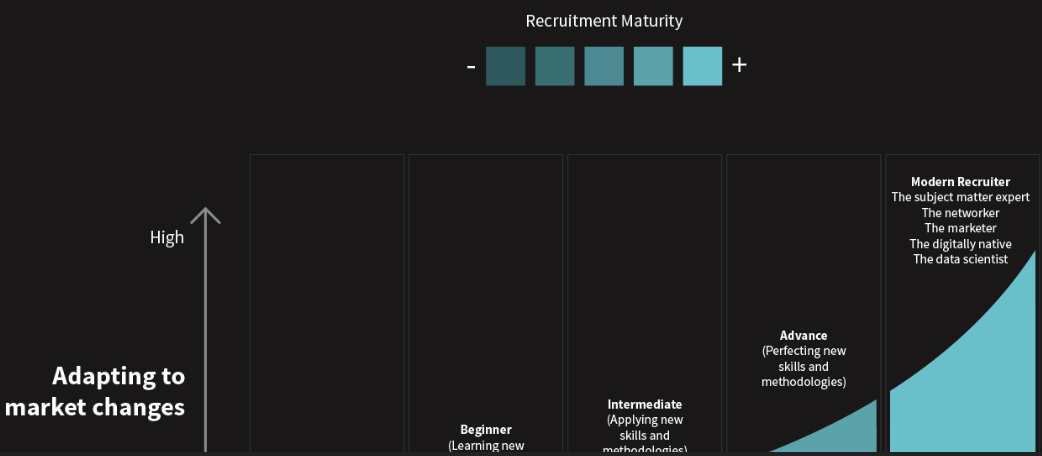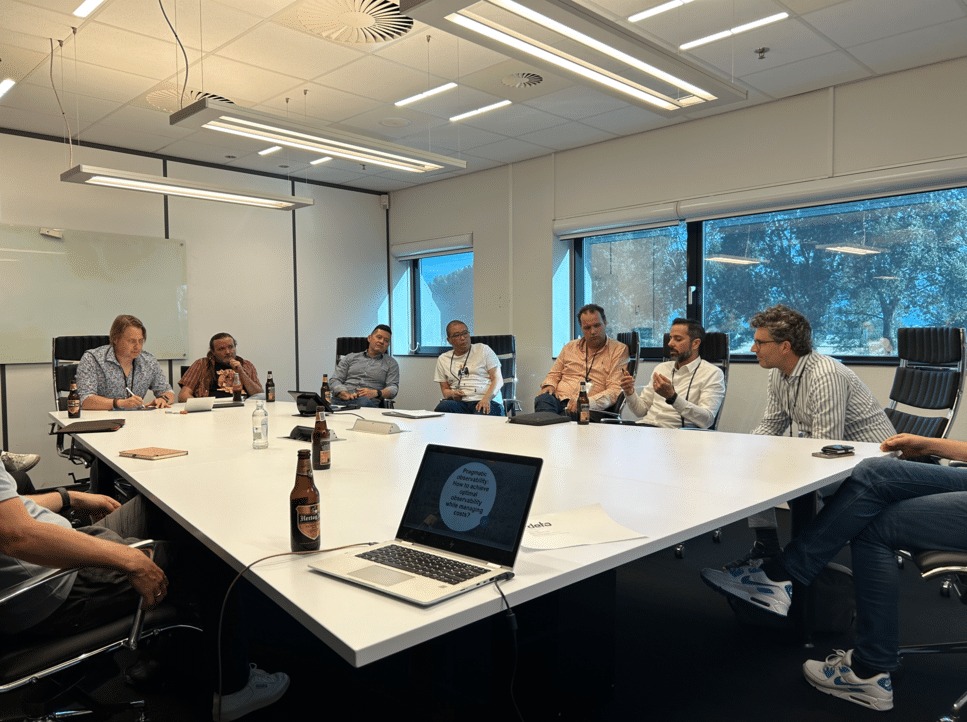What makes the difference between winners and losers in today’s digital world is the ability to identify, recruit and retain the digital talent that makes the technology work. Delivering digital transformation without the right talent is tough. Especially when the talent pool is shrinking.
In their New Way of Working Series, Boston Consulting explains, “There can be no Digital Transformation without the right people. As Digital Transformation disrupts the workplace, one factor more than any other will determine which companies turn digital to their advantage. That critical element is people.”
Digital Transformation
Businesses that want to thrive in the modern economy are taking the path to Digital Transformation. In order to succeed, they need to deliver the necessary people. Digital Transformation requires a new generation of talent with an entrepreneurial mindset who can harness technology, drive innovation and empower change.
Organisations are struggling more than ever to find the right people with the right technology skills – a perfect storm is brewing. We are faced with exploding skills gaps combined with a fundamental shift in the way people are looking for work.
What are the trends we’re seeing today?
The move to digital isn’t just disrupting the way in which we order taxis or book holidays, it’s also creating new societal norms. The way in which we interact with each other, the very nature of how we communicate, is changing the entire employment industry as people increasingly look for work in different ways.
• More difficult than ever to engage people
• Candidates are becoming de-sensitised
• Active candidates moving to online recruitment platforms
• The active talent pool is shrinking as more people expect work to find them
• Move away from LinkedIn
• Balance of power shifted from employers to candidates
• DX means it’s now a level playing field for all employers
• Ghosting
• Structural change in the skills base
• Talent Acquisition is now one of the biggest challenges to growth
The three eras of recruitment

The last few years have seen a new, third era of recruitment burst onto the scene. The Digital Age can be characterised by apps and digital technologies centred around improving your ability to ID and source talent, engage with talent, improve the candidate experience (CX) and improve assessment.
The Digital Age came in response to the failures of the preceding two, with a focus on adapting to candidate behaviours. The technologies that it comprises of are known as Recruitment Technology, or RecTech.

Why is this paradigm shift happening?
The third era is being created by the need to adapt to changing candidate behaviours and the new trends we are seeing today.
Just as Digital Transformation is radically changing many businesses around the world, its effect on the recruitment industry can be seen through vast numbers of new tools, apps and digital platforms. Some focus on talent pooling and sourcing, some focus on improving engagement and bots can transform the candidate experience to create a seamless process for candidates.
Artificial Intelligence, what we like to call Augmented Intelligence, has the ability to radically improve the abilities of in-house teams, by reducing time spent on routine, low skilled, repetitive behaviours and more time on value areas that can drive productivity.
As every CEO in every business is driving digital transformation, the goal for every Head of Talent is to move successfully from one era of recruitment to another, as they undergo Recruitment Transformation.
Recruitment Transformation (RX)
As we move deeper into the Digital era of recruitment, only the recruiters leveraging modern sourcing techniques and the latest apps and digital technologies will be able to access the industry’s top-rated candidates.
Through a combination of technology and the interpersonal skills from the analogue age, a renaissance of the talent acquisition profession is driving performance for those recruiters who are adapting to change.

We call this change in sourcing Recruitment Transformation (RX). It is characterised by the move away from traditional recruitment methods to more modern, forward-thinking resourcing methodologies.

At the organisational level, Recruitment Transformation means cultural, technological, strategic and people change.
• Cultural change is the recognition, throughout an organisation, of the market
trends impacting candidate behaviour. The Candidate Experience (CX) has to adapt
to a market where candidates now have the power, and every stakeholder involved
in hiring needs to be changing their mindset and behaviours in order to move with
the times.
• Strategic change sees diversified, omni-channel recruitment strategies, along with
modern sourcing methodologies, plus the creation of new roles such as
Recruitment Marketing.
• Technological change embraces the new RecTech eco-system of apps, tools and
platforms that have the ability to help recruiters source, engage and assess new
pools of talent more effectively.
• People change replaces 2nd era recruiters with those who have a flare for modern
recruitment; people who are networkers, headhunters, and digitally native.
At the people level, recruiters now need to learn new ways of sourcing talent. That means learning new skills, new methodologies and how to leverage advanced recruitment technologies.
The modern day recruiter is a marketer as much as they are a sourcer, they are digitally native, have a flair for creative writing, and see themselves as a networker.
“Despite increasing skills gaps in many key job families, embracing Recruitment Transformation and the new recruitment methodologies that underpins it will allow in- house recruitment teams to source and attract the talent they need into their organisations”
Mat Roche, Co-Founder at Third Republic
Are you looking for top tech talent to help with your digital transformation journey? Get in touch with our specialist teams for a chat about our services today!




